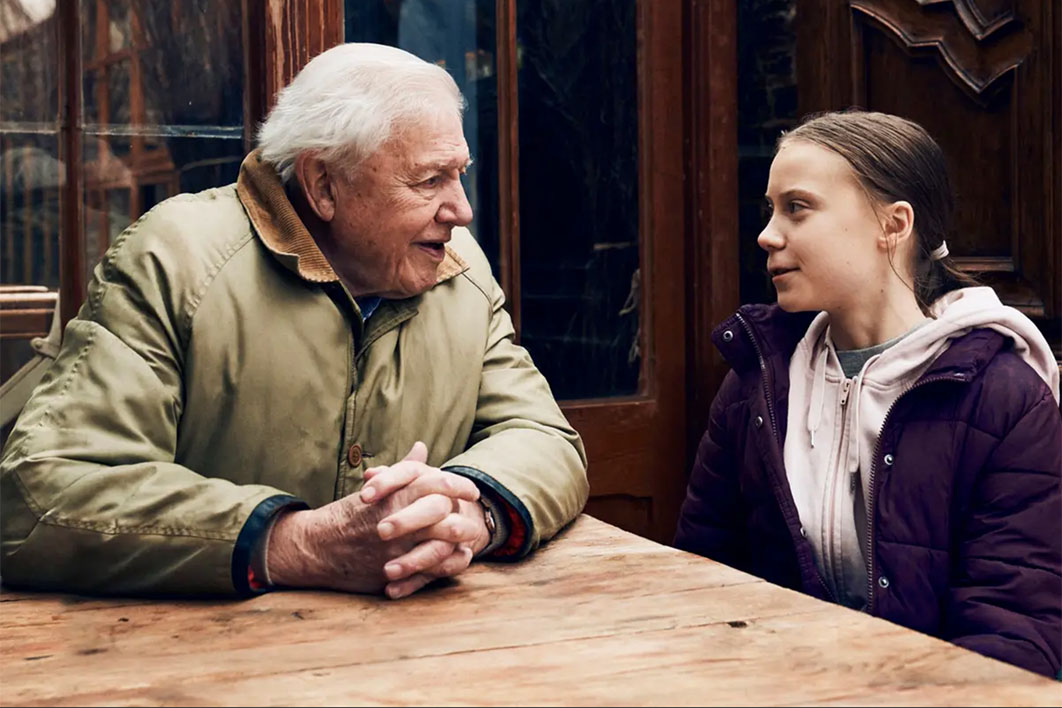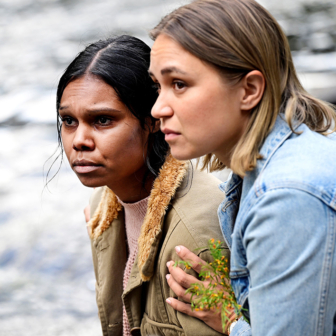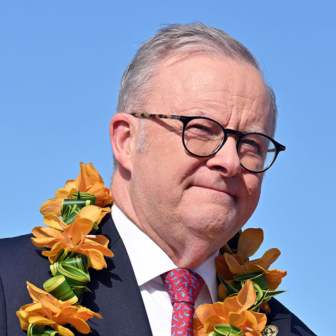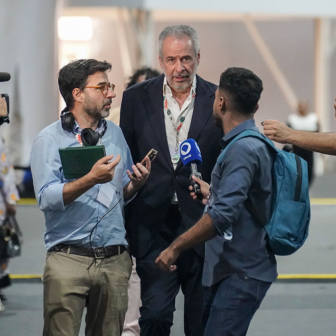On the alpine slopes above Davos, Greta Thunberg digs in the snow under the guidance of Marcia Phillips, a permafrost specialist at the Swiss Federal Institute for Snow and Avalanche Research. Phillips invites her to take the temperature at the bottom of the hole and then at the top. The snow at the bottom is warmer by almost three degrees.
This might be a classic high school science lesson, the student guided to learn from observation, but there’s something not quite right about Phillips’s kindly pedagogical manner. She might almost be talking to a child, yet the sixteen-year-old student — who admittedly looks much younger — already has a sophisticated understanding of the causes and effects of climate change.
Thunberg’s 2019 journey “the whole way round the world the wrong way” is documented in a new three-part BBC series coinciding with the virtual summit on emissions control hosted by US president Joe Biden on Earth Day, 22 April. Greta Thunberg: A Year to Change the World shows the young campaigner combining a high-profile speaking tour with excursions into areas where devastating consequences are all too evident.
In Davos to address the January 2020 World Economic Forum, she takes a side trip up the Piz Cengalo to learn what prompted the massive rockfall that cascaded though the village of Bondo three years earlier. It has to do with that three-degree difference in the temperature of the snow cover, she discovers: the snow is trapping the heat in the ground, causing permafrost to melt and water to flow through fissures in the rock, destabilising the cliff face.
As she moves from one region to another, such chains of consequence fascinate Thunberg. She travels by sleigh into the northernmost reaches of Sweden to talk to indigenous Sámi herders on the edge of the Arctic Circle about the loss of the reindeer herds central to their economy. Lichen, the major component of the reindeers’ natural diet, grows under the snow, and in normal conditions they can sniff it out and dig it up. But when rain falls instead of snow, ice sheets form over the ground and the animals can’t break through.
Scenes from Thunberg’s odyssey are intercut with snatches of her public speeches and extracts from a studio interview. After spending years of her childhood unable to speak to anyone outside her family, her economy of communication seems to have paid off: she has the art of making a clear statement every time she opens her mouth. Seated on a stool in a loose checked shirt with her ever-present water bottle in hand, she makes one crystal clear pronouncement after another.
“Right now we don’t speak the same language as the planet,” she says, and the series shows her unique capacity to heighten awareness of what that means. In the Jasper National Park in the Canadian Rockies, she talks to a biologist about the loss of vast tracts of pine forest. The mountain pine beetle, a species once controlled by periods of deep frost, is running rampant, its eggs feeding on the tissue inside tree trunks that should be carrying nutrients up through the branches.
As a television guide to such phenomena, Thunberg invites comparison with David Attenborough: the sage and the wise child, both deeply committed observers of the natural world who can ignore the distractions of everyday life and focus on larger realities. Their meeting, at the end of the second episode, also highlights the polarities: Attenborough, the veteran career broadcaster who has clocked up more hours of screen presence than almost anyone else in the business, is perhaps the only person who can offer her genuine reassurance as she battles fierce misgivings after what she feels was a debacle at Davos.
For Thunberg, the meetings with celebrities and world leaders are just part of the job she’s given herself, but the encounter with Attenborough has a special pathos. Both have looked into the abyss, confronting the scenes of devastation that will multiply if climate change is left unchecked, but where Attenborough carries the awareness with the gravitas of long experience, Thunberg seems one step away from panic.
Addressing public forums with thousands of delegates, she maintains a steady composure, her laser-like speeches cutting through the political rhetoric. Alone in the interview room, though, her voice shakes and she seems on the verge of breaking down. She tells her fellow students that “it falls to us to be the adults in the room,” but reveals a child’s unguarded immediacy. Contemplating the damage and distress she has witnessed, she has no filter, and is perplexed at how people can insulate themselves psychologically from such crises.
Her father, Svante Thunberg, who speaks to camera through the series, provides some background. By the time Greta left primary school she knew as much about the climate change research as most world leaders. But when she first delved into the facts at the age of eleven, she became depressed and unable to speak to anyone outside her immediate family. A sustained phase of anorexia set in. When she was preparing to make her first public speech, he said, he was afraid she would be unable to cope. “She’s not strong.”
Svante is an unsung hero of the story — pragmatic, patient, concerned and seemingly always there for his daughter, he accompanied her wherever she went until she turned seventeen in early 2020. His presence in the documentary is one of the many ways it calls the bluff on critics who claim she is a puppet figure managed by publicity-hungry parents.
Thunberg may be psychologically fragile in some respects, but as a public figure she is made of pure steel, a match for political leaders of all stamps, whether they attack her or, like Angela Merkel, invite her in to be patronised. She knows their strategies and answers the rhetoric with hard figures on emissions, rising temperatures and fossil fuel subsidies.
“For reasons I don’t understand, people listen when I talk,” she says to camera from her stool in the interview room. “You are listening to me right now. But I don’t want that.” She wants us to listen to the science as she has been discovering it across Europe and America. China was to be her next destination, but the pandemic proved that even Thunberg’s determination can be blocked by circumstance.
With Australia’s prime minister proving one of the most recalcitrant national leaders at the Biden summit, and recently released figures showing that subsidies worth $10.3 billion were given to Australia’s fossil fuel industry over the past year, viewers might wish she was headed this way. And that very thought might shame us into asking ourselves why the responsibility for bringing about change should rest on the shoulders of a teenager who demonstrates that speaking truth to power is more than an empty cliché. •




